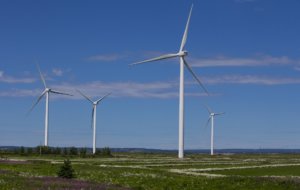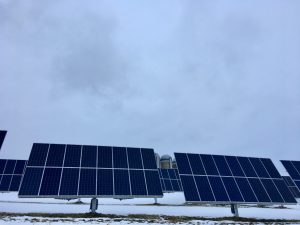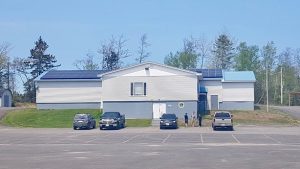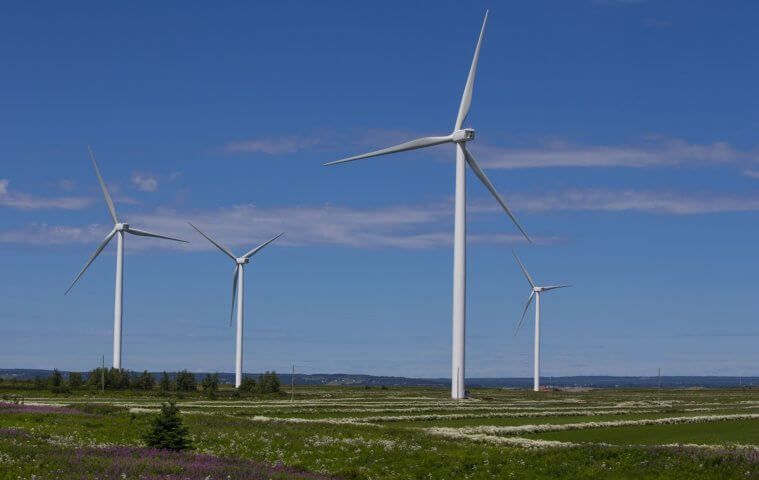June 5 is Clean Air Day, but private energy sector says better education and communication is needed

Whether it’s private businesses like Greystone Energy Systems making energy-efficient cooling systems or Saint John expanding its solar and wind capabilities, it’s clear clean energy industries are making waves in New Brunswick.
But with June 5 being Clean Air Day – and with the news that Premier Blaine Higgs is allowing shale gas fracking near Sussex – it’s an opportunity to reflect on whether politicians are ensuring the new industry has room to flourish in Canada.
Are we riding those waves or have we missed the boat?
“The clean-energy sector is already our present, but it’s bound to be even more of our future. And if it remains undiscussed by politicians and the media, then Canadians can hardly be blamed for not recognizing the clean-energy opportunities in their midst, and fearing the worst,” wrote Merran Smith, executive director of Clean Energy Canada, in an op-ed piece in The Globe and Mail late last month.
“That’s a problem in need of a solution,” she continued.
Communication an issue
Sarah Arsenault, spokesperson for Fredericton’s Naveco Power, sees communication as one roadblock preventing New Brunswickers from exploring greener solutions.
She said Naveco is one of the few cleaner energy developers in the province.
“It’s people like us that need to get the word out,” she said.
She also said recent polling, however, suggests 87 per cent of Conservatives across Canada want to see more investment in renewable energies.
“I think it means that people are looking forward and are excited to have more clean energy opportunities in their province,” she said.

“If we’re going to be serious about renewable, cleaner energy, then we’re going to need the support of all parties across the political spectrum,” said Lois Corbett, executive director for the Conservation Council. “Minimizing the impact of the changing climate shouldn’t be a team sport. Protecting the health and safety of New Brunswickers demands an ‘all hands on deck’ approach.”
And there’s more good news for Naveco. It was awarded a contract through NB Power’s LORESS program in 2017 to build one of New Brunswick’s first community-owned, 20-megawatt wind farm near Bathurst.
“But we can’t go too far into detail about that,” Arsenault said, until everything finalized.
‘Right thing to do’
Mark McCann is president of MJM Solar Solutions, based outside of Fredericton, which sells and installs solar equipment. He agrees more can be done to promote the New Brunswick cleaner energy industry.
“There is definitely ground they could cover a little better,” McCann said. “We’re right next to Nova Scotia, which in my opinion has one of the best programs in the country right now.”
Nova Scotia has a rebate up to $8,500 for qualifying solar-power systems.
But he doesn’t believe New Brunswick is falling behind, just that it could be doing more.
“Of course I’m going to say we need more solar. I run a solar company,” he said.
Most of it comes down to education. The return on investment with solar energy takes longer here because electricity is cheaper than in most provinces, he said.
Likewise, most people believe New Brunswick’s solar capacity is significantly lower than places like California because of snow.
But a one-kilowatt system in Atlantic Canada produces approximately 73 per cent as much energy as it would in the Golden State, McCann said.
“It doesn’t matter about snow in the wintertime because you don’t have that much sunlight,” McCann said. “And in the summertime, our days are significantly longer.”

Still, he said even without a rebate system as large as Nova Scotia’s, people are installing the technology.
“Because they feel it’s the right thing to do.”
But with fracking, not clean energy, back in the headlines, the question remains whether partisan politicians are also coming closer to recognizing the right thing to do.

